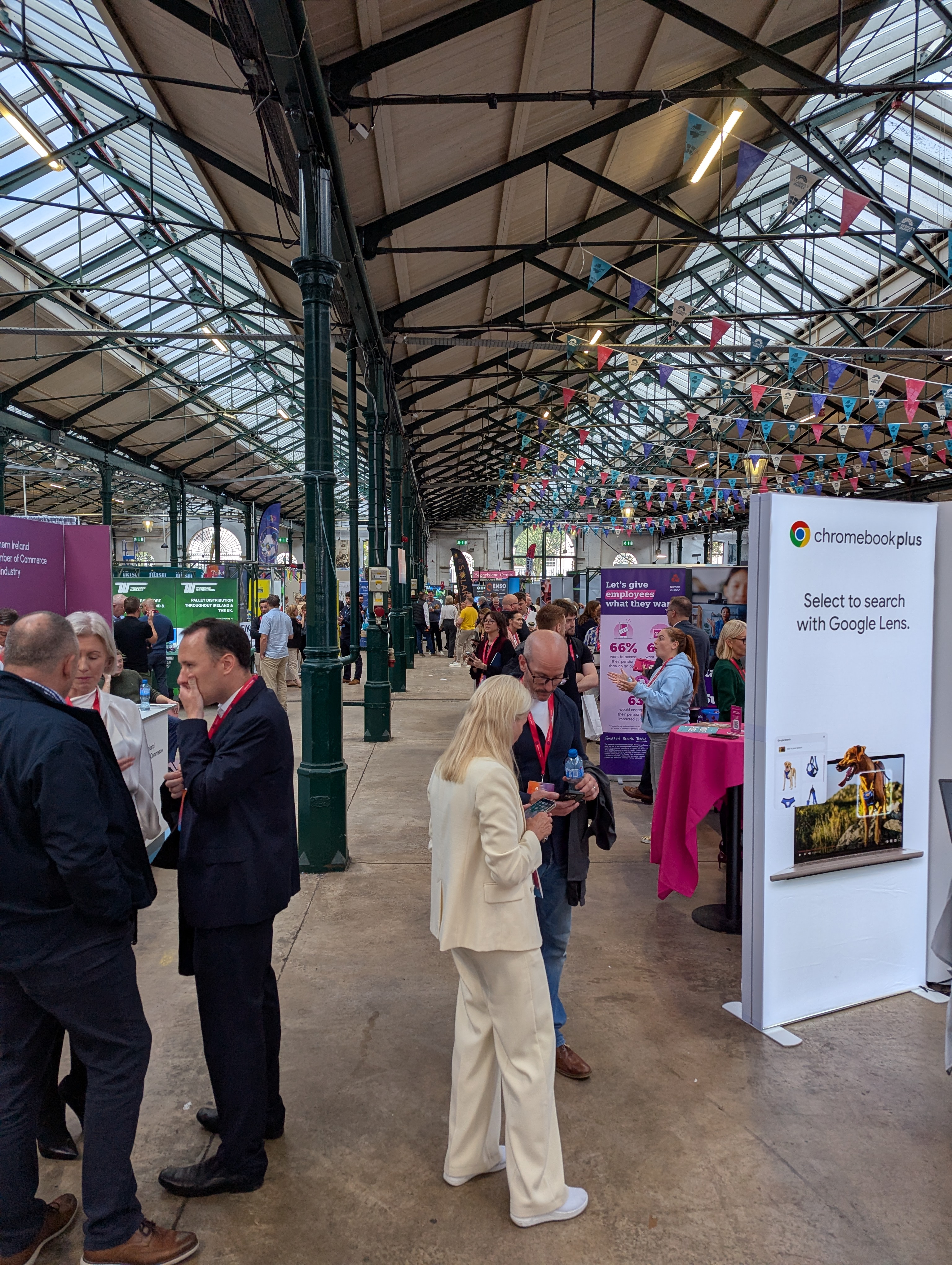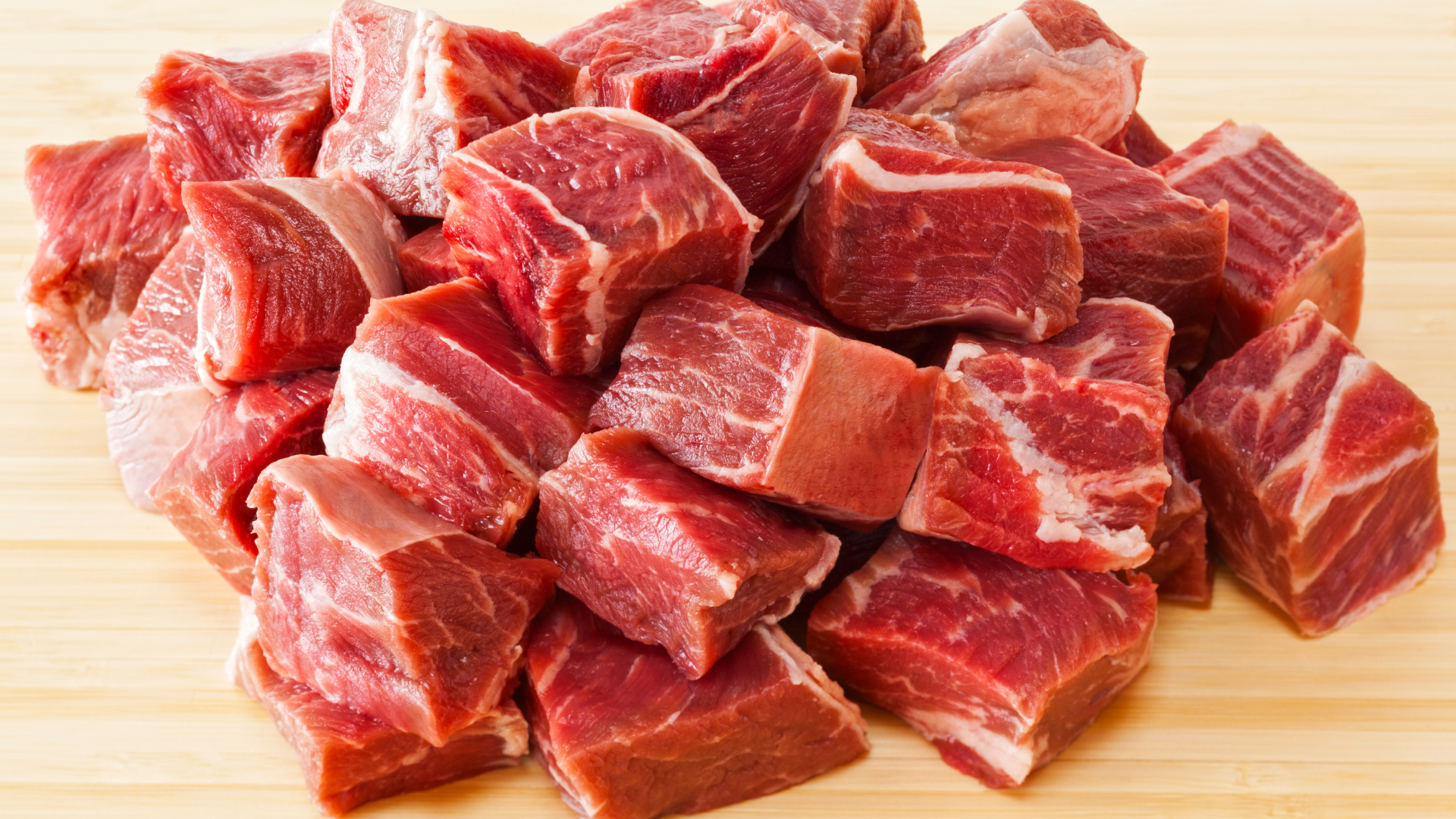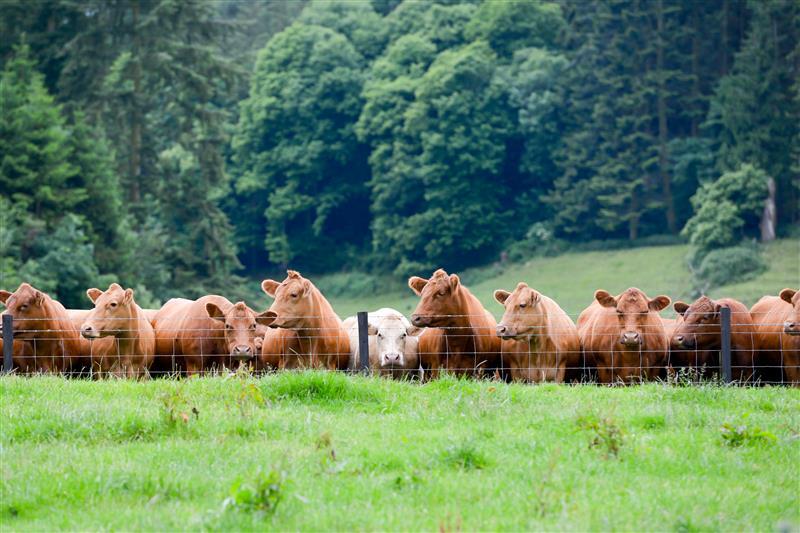With less than six months until the EU Deforestation Regulation deadline, we chatted with our EUDR experts - Dr Fiona Roberts, Dr Stephanie Brooks, Kate Williams and Ben Meadows – to get their insight on why there’s so much pushback on the upcoming legislation.
The beginning of July marked the six-month point until the roll-out of EUDR, and the controversial legislation continues to make headlines. We talked to our experts to find out why...
There’s so much chatter around EUDR right, with a lot of it negative. Last week the US government got involved and demanded a delay. Why do you think there’s so much industry resistance right now? And will they roll it out on schedule?
Dr Fiona Roberts: The challenge was always going to be that while the legislative framework is in place, there was always going to be some discussions about how implementation would be verified and challenged. I think it will happen, but the extent to which businesses are likely to be scrutinised in relation to their adherence - that might be more of a moveable feast.
Dr Stephanie Brooks: I think Fiona is right. The biggest questions right now are around how the EU Commission will police the implementation. Currently businesses we’re speaking to feel that there isn’t enough clarity around what they have to do, and what records and other documents they must declare. It will go ahead, but the practicalities of implementing it are something else. It's a huge modelling piece – with the legislation and the auditing piece around it.
Dr Fiona Roberts: The reality is that even if UK and EU businesses have left it fairly late in the day to comply, the general feeling is that the legislation will still happen. I feel that businesses want to demonstrate that they have thought about it and are working on it. Even if they won’t have the level of visibility in place that the legislation indicates is required.
"The biggest questions right now are around how the EU Commission will police the implementation." - Dr Stephanie Brooks, Head of Business: Traceability & Innovation at Foods Connected
Dr Stephanie Brooks: The other thing to consider is that there are a lot of US companies placing product in the EU market, so they are bound by this legislation. EUDR is a source-bound legislation - so it really comes down to being able to prove at source that there’s no deforestation. And I would guess that a lot of manufacturers in the US just don’t have that visibility at present. The US is behind Europe when it comes to visibility, so that’s why there’s a lot of push back.
Dr Fiona Roberts: There is precedent if we look at other examples of EU legislation that are, in theory, applicable to all third-party countries placing product in the EU. One of the ones that Kate and I deal with very closely is in relation to slaughter legislation. In that case, it isn't the legislature driving adherence, it's the retailers.
This is what may happen when you've got legislation, where the enforcement mechanisms are comparatively weak. I think we could get to a point where, if there is product coming in from the US, it will be the end EU or UK retail and manufacturing customers affected by it who will drive the requirement for visibility. Then it will be driven down supply chains to third parties outside the EU.
Dr Stephanie Brooks: I think, as Fiona says, the businesses supplying into the UK will end up being the guardians, as the legislation will have jurisdiction over them.
"I think we could get to a point where, if there is product coming in from the US, it will be the EU or UK retailers or manufacturers affected by it who drive the requirement for visibility." - Dr Fiona Roberts, Head of Business: Animal Welfare, Compliance & Environment at Foods Connected
Dr Fiona Roberts: But it’s going to take a while for that to happen. The danger is – taking the slaughter regulations as a guide – is that it will become problematic, because you get some suppliers saying that a certain supermarket or manufacturer is demanding compliancy, but then others might not. It could end up creating a stratified market for some of these commodities, in that there will be those that require all the EUDR compliance. Then there will be another market for those countries that do not - where cost is everything. So, it won't actually do anything overall to necessarily increase improved global compliance. But it becomes make it difficult to track these different markets.
Do you think the UK Government has put the UK forest Risk Commodity Regulation on the back burner while they wait to see what happens with this?
Dr Stephanie Brooks: For years the EU has had a hormone-free policy for livestock, but obviously it’s still very much part of the production system within the US. But that's not to say that US meat doesn't end up in our supply chain in the UK or in Europe. I think you’ll find this might also be the case ultimately with EUDR.
So, was the UK intervention a surprise?
Dr Stephanie Brooks: I didn't really expect it. The US is struggling with quite a lot of legislative changes, at the moment and this is just another one to add to the list that they have to comply to. You've got FSMA 204, then the constant conversation about foodborne illnesses in the US and recalls. I think they will be hit with a European-like model at some point, but potentially it’s all come a bit too thick and fast for them. This is them pushing back.
Dr Fiona Roberts: I agree. This feels a bit broader than the EUDR piece. I think there seems to be quite a lot of push back against a raft of different agricultural policies and initiatives in the US. Things like Proposition 12 in California have had a much wider-reaching impact on different sectors of agriculture than the industry initially thought they would.
As Steph says, there are a range of measures going through, but there seems to be a mounting push back against all of them.
And what are we recommending businesses do to prepare for EUDR in the meantime?
Kate Williams: I think there’s still a lot of confusion as to what the responsibilities are – and it all comes down to what type of business you are. We often speak to people that don't need to go down to the level of detail that the actual primary suppliers, the traders and the people on the ground, need to.
"I think there’s still a lot of confusion as to what the responsibilities are – and it all comes down to what type of business you are." - Kate Williams, Agriculture & Animal Welfare Specialist at Foods Connected
So, for them it should be about really working out what the legislation means for their business. Then the next point is getting that visibility over the whole supply chain – because a lot of these are not really integrated. You buy a bag of coffee and it could come from 25 different farms, making it really difficult. People are starting to realise that. You just need to look at the numbers around coffee and other products that are being imported. There's definitely an upwards trend of people trying to stockpile before EUDR comes in.
So figuring out what it means for your business and then making sure you have visibility of your supply chain are the first two steps businesses should be taking.
Dr Fiona Roberts: You need to understand what the impact is. I don't think anyone really believes they are going to be held to account on the 1st of January, but at the same time, it would probably be a mistake to think that you've got another five years to get your house in order.
And what's the general feeling among people you're talking to about it?
Dr Stephanie Brooks: No clarity. I think everyone's very aware that it's no longer just about getting a certificate from your supplier. It goes beyond that. But they don't know what they're supposed to do and what papers they're supposed to collect. Plus, no one has any clarity as to the frequency of collection.
Ben Meadows: Some businesses are finding the information available very vague, which makes it very difficult to be ready for it. Others are doing what they can with supply chain mapping, but this is still managed by spreadsheet.
Supply chain assurance, traceability and authenticity are huge issues in the food industry, so businesses need to invest in these areas regardless of EUDR legislation.
"Supply chain assurance, traceability and authenticity are huge issues in the food industry, so businesses need to invest in these areas regardless of EUDR legislation." - Ben Meadows, Head of Customer Success: Quality & Technical at Foods Connected
Is the issue the size of the ask? I mean is this the biggest piece of legislation to affect the food industry in recent times?
Kate Williams: I think this depends on the context. For the suppliers of the products, it may well be, but for other areas no.
Dr Stephanie Brooks: I would say no too, but there is one big difference. There is no immediate sense of urgency, which is compelling the industry to comply. Over the years, major legislative changes have been driven by what ultimately boils down to chaos. Once in a blue moon there have been scenarios where there's been an incident, like BSE in the late 80s and early 90s, that drove a massive piece of legislative changes around how we identify, trace and process cattle for beef.
That was a huge, huge uplift and change in legislation. We've had all the scandals that have hit Europe, that have created drivers for legislative change like horsemeat and the melamine scandal. All these things are inception-based events that have created some form of chaos that then drives legislative change. When it comes to EUDR, yes there is chaos around climate change and what’s happening and how we're going to preserve the planet for years to come.
But that’s more of a medium to long-term thing. The urgency of it doesn't necessarily drive behavioral change – and it’s that lack of urgency is probably where the EUDR legislation really fails. There’s no immediate shock to the market that will create change.
"That lack of urgency is probably where the EUDR legislation really fails. There’s no immediate shock to the market that will create change." - Dr Stephanie Brooks, Head of Business: Traceability & Innovation at Foods Connected
Kate Williams: The lack of guidance around it has also been a struggle for a lot of businesses, because in the EUDR statements they ask for verifiable information, but they don’t really go into much detail as to what that means.
And I think as a whole, all of the targets that the EU has got around carbon and just sustainability in general, are having an impact. I think it's the uplift in legislation around sustainability as a whole that seems such a big change. You've got this, but you've also got CSRD and CSDDD coming, and they've got huge requirements around them too. But for CSRD, they've got EFRAG producing guidance document upon guidance document to help people integrate that. And you just haven't seen the same for EUDR.
Dr Fiona Roberts: I think it's even worse than that, because some of the stated requirements or stated elements of EUDR actually don't exist at the moment. So, when you speak to people, they say yes, we know that countries are going to be risk rated. Therefore, if we can show that products come in from “here” (meaning a lower risk geography), then some of our obligations are less. But that whole part of the process hasn't even been completed; there are currently no risk ratings. Everything is considered the same risk, and yet some companies aren’t aware of that.
"I think it's the uplift in legislation around sustainability as a whole that seems such a big change. You've got this, but you've also got CSRD and CFDDD coming, and they've got huge requirements around them too." Kate Williams, Agriculture & Animal Welfare Specialist at Foods Connected
As everyone has said, there are so many different elements of confusion. What does the legislation actually say at the moment? How does it apply to your business and your obligations? And then understanding what your supply chain looks like, back to the raw materials, to understand if you are implicated in the legislation as it is written now.
Once you've gone through those three steps, there’s figuring out what’s next. I think as Kate said, there’s probably better uptake, albeit begrudgingly, from UK/EU companies because the same processes that they're having to go through to report for EUDR form part of these other overarching legislative elements as well.
But if you've got a business that uses EUDR as a standalone thing, because they are trading as a third-party country, then you can see why they might be arguing that Compliance by the end of this year is not an option.
Dr Fiona Roberts is our Head of Business: Animal Welfare, Compliance & Environment
Dr Stephanie Brooks is our Head of Business: Traceability & Innovation
Kate Williams is our Agriculture & Animal Welfare Specialist
Ben Meadows is Head of Customer Success: Quality & Technical
The EUDR legislation is due to be rolled out on 30 December 2024. If you’d like to speak to our traceability and EUDR specialists about the approaching legislation and how it affects your business get in touch and we'll organise a demo.
.jpg)
Greer McNally
Greer has over 15 years’ experience writing about trends in the food and retail sectors. She lives in a little village by the sea in Northern Ireland and loves creating content that informs how people think about the food industry. A recent career highlight was interviewing the legend that is Dr Temple Grandin.
Stay up to date
Stay up to date
Browse Posts
- February 2026
- January 2026
- December 2025
- November 2025
- October 2025
- September 2025
- August 2025
- July 2025
- June 2025
- May 2025
- April 2025
- March 2025
- February 2025
- January 2025
- December 2024
- November 2024
- October 2024
- September 2024
- August 2024
- July 2024
- June 2024
- May 2024
- April 2024
- March 2024
- February 2024
- January 2024
- December 2023
- November 2023
- October 2023
- September 2023
- August 2023
- July 2023
- June 2023
- May 2023
- April 2023
- March 2023
- December 2022
- November 2022
- October 2022
- September 2022
- August 2022
- July 2022
- June 2022
- May 2022
- April 2022
- March 2022
- February 2022
- January 2022
- December 2021
/Blog%20Headers/EUDR%20blog%202025.jpg)

/Blog%20Headers/shutterstock_1927957907%20(1).jpg)
/Blog%20Headers/shutterstock_1845178195%20(2).jpg)
/Blog%20Headers/shutterstock_2133827717%20(1).jpg)
/Blog%20Headers/shutterstock_2473376713.jpg)
/Blog%20Headers/shutterstock_2474442759.jpg)






/Blog%20Headers/Preparing%20for%20the%20EU%20Deforestation%20Regulation%20(EUDR)everything%20you%20need%20to%20knowjpg.jpg)
/Blog%20Headers/Digital%20Food%20safety%20management%20system.jpg)
.png)
/Blog%20Headers/shutterstock_2174607735.jpg)
/Blog%20Headers/shutterstock_1886990077.jpg)
/Blog%20Headers/UK%20%26%20US%20attitudes%20conversations%20about%20traceability.jpg)
.png)
/Blog%20Headers/shutterstock_2461210039.jpg)